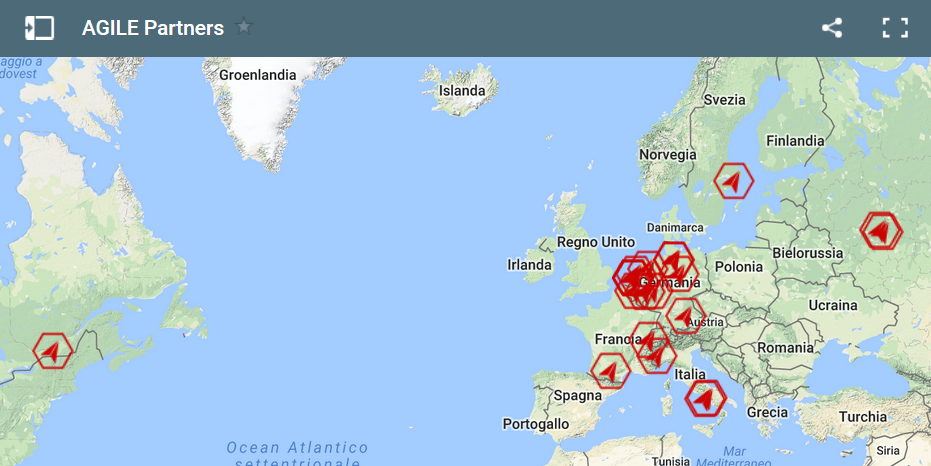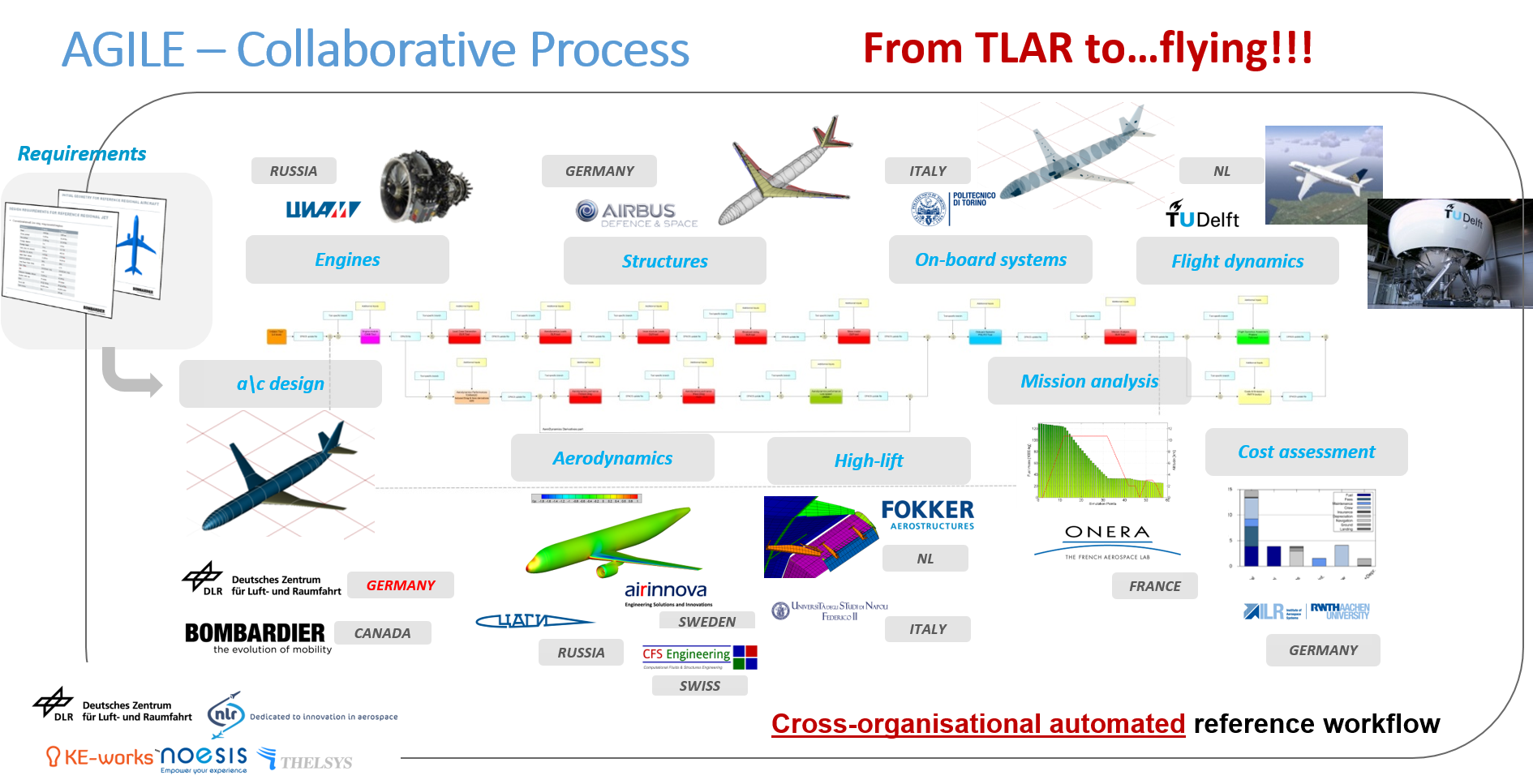Aircraft 3rd Generation MDO for Innovative Collaboration of Heterogeneous Teams of Experts
The AGILE innovation project is granted by the European Commission. AGILE targets multidisciplinary optimization using distributed analysis frameworks. The project is set up to proof a speed up of 40% for solving realistic MDO problems compared to today’s state-of-the-art. The use cases are realistic overall aircraft design tasks for conventional, strut-braced, box-wing and BWB configurations. The scope of development:The project will run from 2015 to 2018 and is part of the Horizon 2020 program. For further information, please visit AGILE Project website. When a project for a new aircraft is initiated, designers need knowledge and competences from many different disciplines in order to make the right decisions about the plane’s systems and functions. From the start of the aircraft design process computer simulation plays an major role in the prediction of the physical properties and behaviour of the aircraft. A major challenge arises in aircraft design as the properties from different disciplines (aerodynamics, structures, stability and control, ..) are in constant interaction with each other. It is therefore important not only to connect the simulation models but also the corresponding experts to combine all competences and arrive at the best possible design.
This is at the core of the EU funded Horizon 2020 project AGILE coordinated by the Institute of Air Transportation Systems of the German Aeronautical Research Establishment DLR. AGILE will implement the 3rd generation of multidisciplinary optimization through efficient international multi-site collaboration in overall design teams. The project builds on key technologies developed over the last 10 years at DLR, as for example the common data format CPACS and the integration framework RCE.
Understanding complex systems and products as aircraft and the aircraft design process depends highly on the exploitation of knowledge. New technologies to exploit and/or re-use available engineering knowledge have become available and they have the potential to substantially accelerate the multidisciplinary aircraft design optimization process. Knowledge Based Engineering (KBE) for multidisciplinary aircraft design is one of the key innovations that the AGILE project promises to deliver.
The AGILE project has set ambitious performance targets to meet at the end of the project in 2018: a reduction of 20% in time to converge the optimization of an aircraft and a 40% reduction in time needed to solve the multidisciplinary optimization in a team of heterogeneous specialists. This will lead to aircraft designs with improved performance and a 40% performance gain (compared to aircraft in service today) is expected for large passenger unconventional aircraft.
To meet the challenges of the AGILE project a team of 19 partners from Europe, Canada and Russia, coming from industry, research and academia will collaborate together. The composition of team reflects the heterogeneous structure that is characteristic for today’s design teams. The budget of the project is close to 9 Million Euro, with around 7 Million Euro provided by the European Commission.


